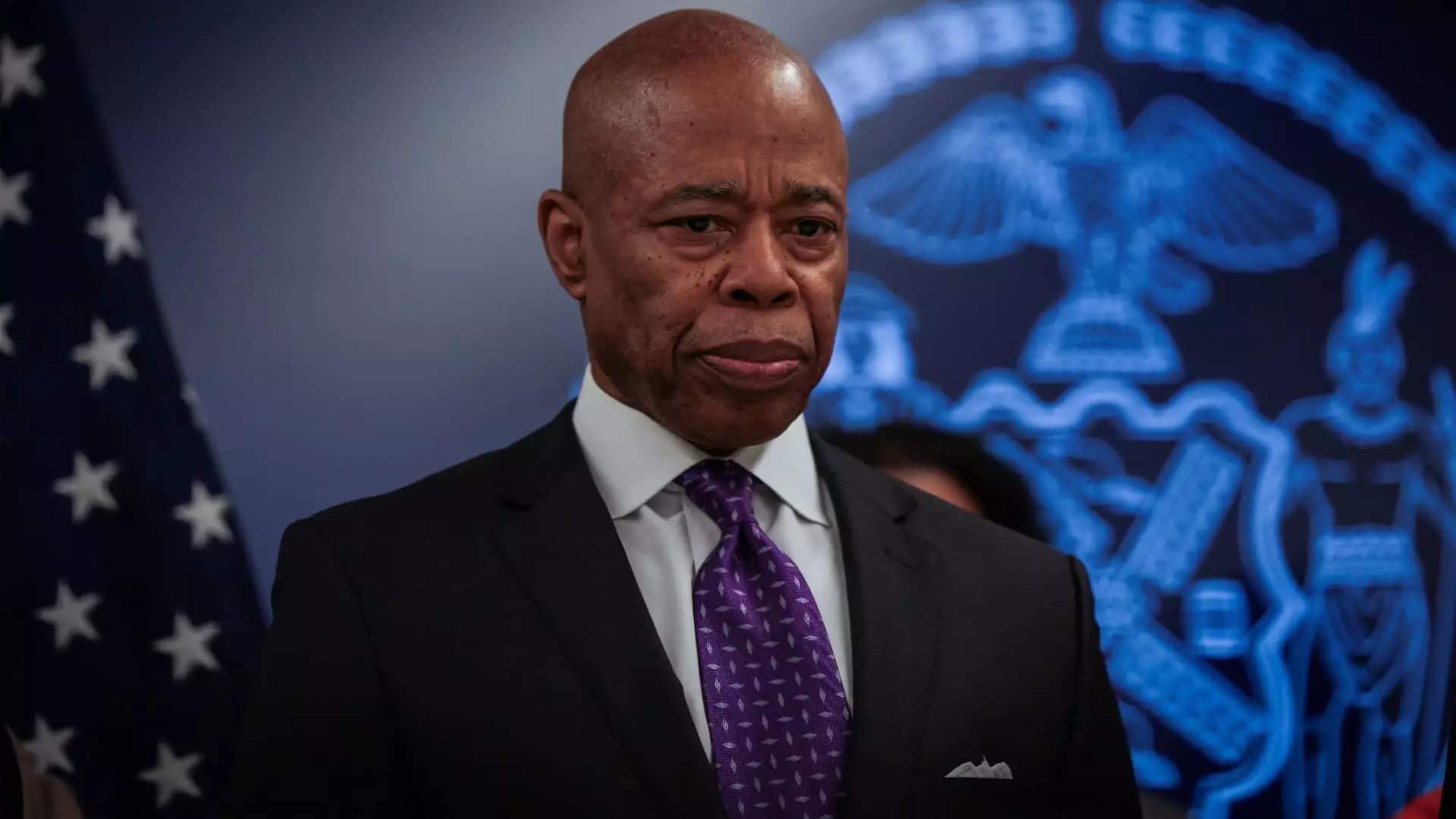Eric Adams, the Democratic mayor of New York City, finds himself embroiled in a legal quagmire that has significant implications not just for his administration but for the political climate in the city itself. Recently, a federal judge, U.S. District Judge Dale Ho, declined to dismiss Adams’ corruption case immediately, instead opting to postpone the trial indefinitely. This decision came after the Justice Department made an unusual request for the charges against him to be dropped, setting off a chain of resignations among the prosecutors tasked with the case. The complexities of this legal confrontation are further exacerbated by a fraught political backdrop involving partisan divisions and accusations of retribution.
The Justice Department’s intervention in Adams’ case raises important questions about the influence of political considerations on legal proceedings. The request for dismissal was reportedly motivated by concerns that the ongoing case impeded Adams’ ability to fulfill his mayoral responsibilities, including a focus on public safety and immigration policies. Notably, this situation is complicated by the fact that the order to seek dismissal was initiated by Acting Deputy Attorney General Emil Bove, a Republican appointee. This move has been interpreted by many as a politically charged maneuver, with accusations surfacing that the dismissal was intended to keep Adams aligned with the Trump administration’s hardline immigration stance.
The specter of political favoritism looms large over this situation, especially given the visible partisan divides that have arisen. Some Democratic leaders have openly criticized the Justice Department’s involvement, arguing that it puts Adams in a position of dependency on the Trump administration, thereby compromising his ability to govern effectively and independently.
The resignations of several prosecutors in response to Bove’s directive indicate a growing discontent within the Justice Department regarding the handling of this case. Notably, Danielle Sassoon, the acting Manhattan U.S. attorney, opted to resign rather than comply with Bove’s instructions to move towards dismissal. This exodus not only questions the integrity of the Justice Department’s current leadership but also signals serious ethical dilemmas faced by attorneys in navigating the intersection of law and politics.
The fallout from these resignations reverberates through the political landscape of New York. Senior political figures have openly called for Adams to step down, arguing that the chaos surrounding his administration jeopardizes the city’s governance and tarnishes its reputation. Moreover, as Adams prepares for re-election, the shroud of legal uncertainty further complicates his campaign efforts.
Eric Adams, 64, has maintained a stance of innocence and defiance, pleading not guilty to charges of accepting bribes and campaign donations from Turkish nationals. His supporters argue that the accusations stem from a politically motivated vendetta, asserting without direct evidence that the Biden administration brought the charges due to his outspoken critiques of their immigration policies. However, these assertions have been met with skepticism, particularly in light of the clear linkage between the timing of the charges and the shifts in political alliances.
In the increasingly charged environment, Adams’ interactions with former President Trump have added another layer of complexity to his image. His visits to Trump in Florida and participation in related political events have been scrutinized and interpreted as attempts to align himself with Trumpism, raising eyebrows among both allies and opponents.
As the political landscape evolves, consequences from this tumultuous situation will likely resonate far beyond Adams’ immediate fate. The development of oversight mechanisms for the mayor’s office proposed by Governor Kathy Hochul hints at broader ramifications for New York City’s governance structure. The outcomes of these legal proceedings may also set a precedent for how future political figures are held accountable for their actions while in office, particularly in the balancing act between justice and political expediency.
The unfolding saga surrounding Mayor Eric Adams encapsulates the intricate interplay of law, politics, and public trust. With his trial delayed indefinitely, and a political crisis looming, both the prospects for his re-election and the integrity of the political system will be tested in the months to come. The eventual resolution of this case will prove pivotal, not only for Adams but for the future trajectory of governance in America’s largest city.

